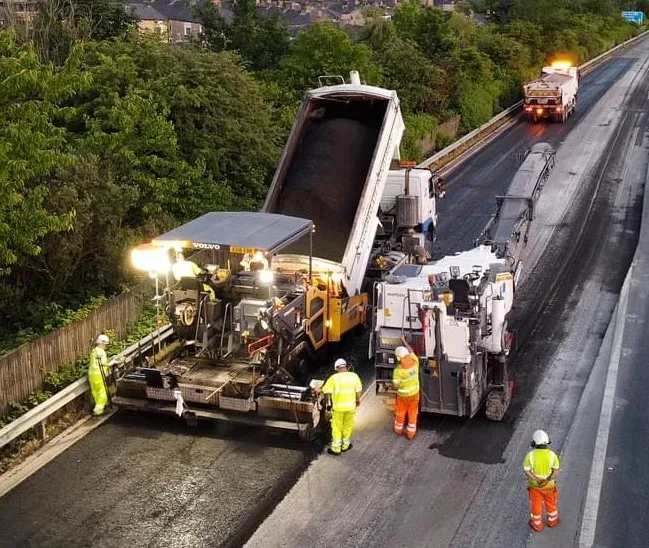
Mott MacDonald says it is the first company to provide client-approved detailed carbon data for completed construction projects to the new Built Environment Carbon Database.
The move to create the BECD has been driven by criticism of the shortage of openly available industry data, according to Mott MacDonald, a UK-based global civil engineering company.
The BECD is a free-to-access benchmark tool for infrastructure carbon assessment in the UK. It was created by the Building Cost Information Service which provides cost and price data for the UK construction industry. The BCIS was founded as part of the Royal Institution of Chartered Surveyors it is now a standalone company.
The BECD will allow precise calculation of the embodied carbon in all elements of a project, rather than an estimated single value for an overall project.
The BECD’s launch is initially focused on highway assets and uses a substantial body of infrastructure carbon data harvested from highways projects delivered by Mott MacDonald over the past seven years. Plans are in place to roll the database out to assets in the rail, energy and water sectors.
Kim Yates, UK and Europe climate change lead at Mott MacDonald, said the datasets will allow you to look at the carbon cost of a typical highways’ asset, such as a roundabout or flyover. The information can then be pieced together in a detailed fashion, rather than just a single figure for an overall project.
“It is that breakdown of the numbers on an asset-by-asset basis that makes this an industry first and differentiates it from carbon calculators, as it is based on built assets rather than predictions at design stage,” said Yates.
“By having a clear view of the current carbon cost, we can truly track the impact of carbon reduction measures taken at the design stage and compare them with industry norms. Using this data will aid design decisions to be made that enable our carbon reduction efforts to go further and faster.”
The Building Cost Information Service, through its chief executive James Fisks, is calling for other companies and clients to share their information and give the database a broader range of data.
"The clock is ticking and we can no longer hold back on sharing anything that could help in our fight against climate change,” said Fisks. “This doesn’t mean losing your competitive advantage. The more data held centrally benefits everyone and helps reduce risk.”









